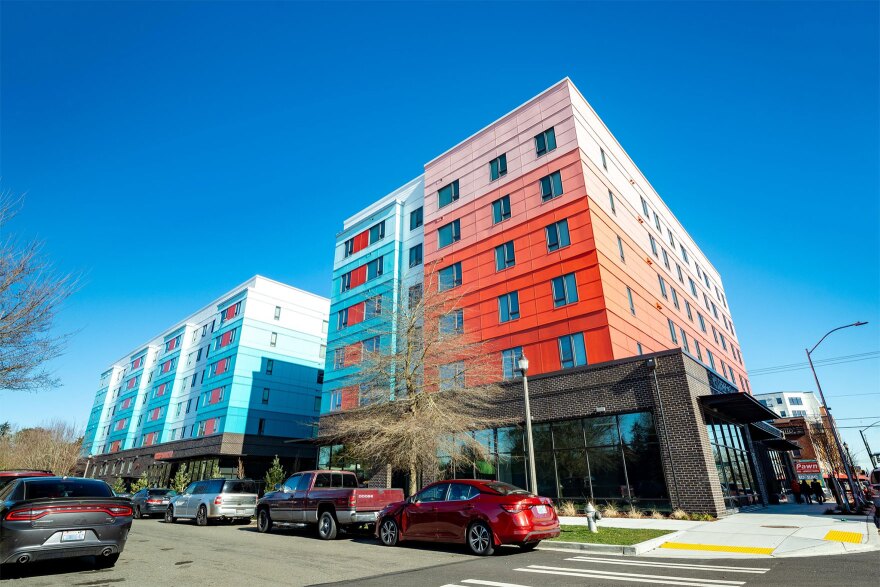Years ago, Miriram Barnett, the interim CEO of YWCA Pierce County, dreamed about turning an empty parking lot into beautiful, affordable housing.
Her dream came true with the Dorothy Height apartments. The building, which opened in 2021, serves people who were homeless, as well as domestic violence survivors.
But now, the building has put a financial strain on the nonprofit. Barnett attributes the strain to Tacoma’s Landlord Fairness Code.
“Had we known it was coming down the pipe, we would not have done this project,” Barnett said.
Since the Landlord Fairness Code went into effect in 2023, YWCA Pierce County has struggled with regulations on when landlords can evict tenants. There’s a moratorium barring landlords from evicting tenants between Nov. 1 and April 1 for not paying rent. In addition, if a household has school-aged children, the moratorium extends through the school year.
YWCA Pierce County has been set back $150,000 in unpaid rent since the code went into effect.
“ That's money … that we don't have to serve domestic violence victims,” Barnett said.
In December, it’ll have been two years since the voter-approved ordinance went into effect. That’s when the city council can start amending the ordinance, if they choose.
Tacoma City Council Member Sarah Rumbaugh released her drafted amendments at the end of October, which included exempting affordable housing providers.
“One of the things I've really seen is a significant burden on low-income housing providers in Tacoma,” Rumbaugh said. “What's gonna happen if they can't afford to stay here?”
In a recent survey, the Tacoma-Pierce County Affordable Housing Consortium found that of 17 affordable housing providers, four reported that they were selling properties and three were considering it due to financial pressures.
The Tacoma Housing Authority is the city’s largest affordable housing provider. Since the code went into effect, the housing authority said it has seen higher rates of rent delinquency.
In 2019, the rate of people not paying a month of rent or more was 15%. It is now at 38%, said April Black, the Tacoma Housing Authority’s executive director. While Black said she isn’t sure if the code is solely responsible for the rise in delinquencies, she said there is a correlation between the two.
Over the past 12 months, the housing authority has loaned over $430,000 from its reserves to its properties because of lost income from rent.
“ There's this misperception that housing providers can just absorb these losses, but most of us have private debt and none of that is going away,” Black said. “So it's really at a breaking point if you're not able to have a reliable income source in tenant rent.”
Prior to the code, Black said the housing authority would resolve many eviction cases through a repayment plan. This was possible because many eviction cases would begin a few months after a tenant stopped paying rent.
“ Because we're not able to proceed with an eviction and really negotiate a repayment agreement through the court process, it's just allowing the unpaid rent to continue longer than it ever would have before,” Black said. “ We have seen some evictions that have taken two years where it's tens of thousands of dollars worth of unpaid rent.”
That high debt puts people at a major disadvantage when they’re trying to find other housing, said Amanda DeShazo, who is the executive director for the Tacoma-Pierce County Affordable Housing Consortium.
“ A lot of our providers are saying, 'We want to take these folks in. We want to give them an opportunity, but we can't take them in with the amount of debt that they have,'” DeShazo said.
Rumbaugh will present her policy proposal to change the code at a special meeting of the Community Vitality and Safety Committee on Nov. 6.


